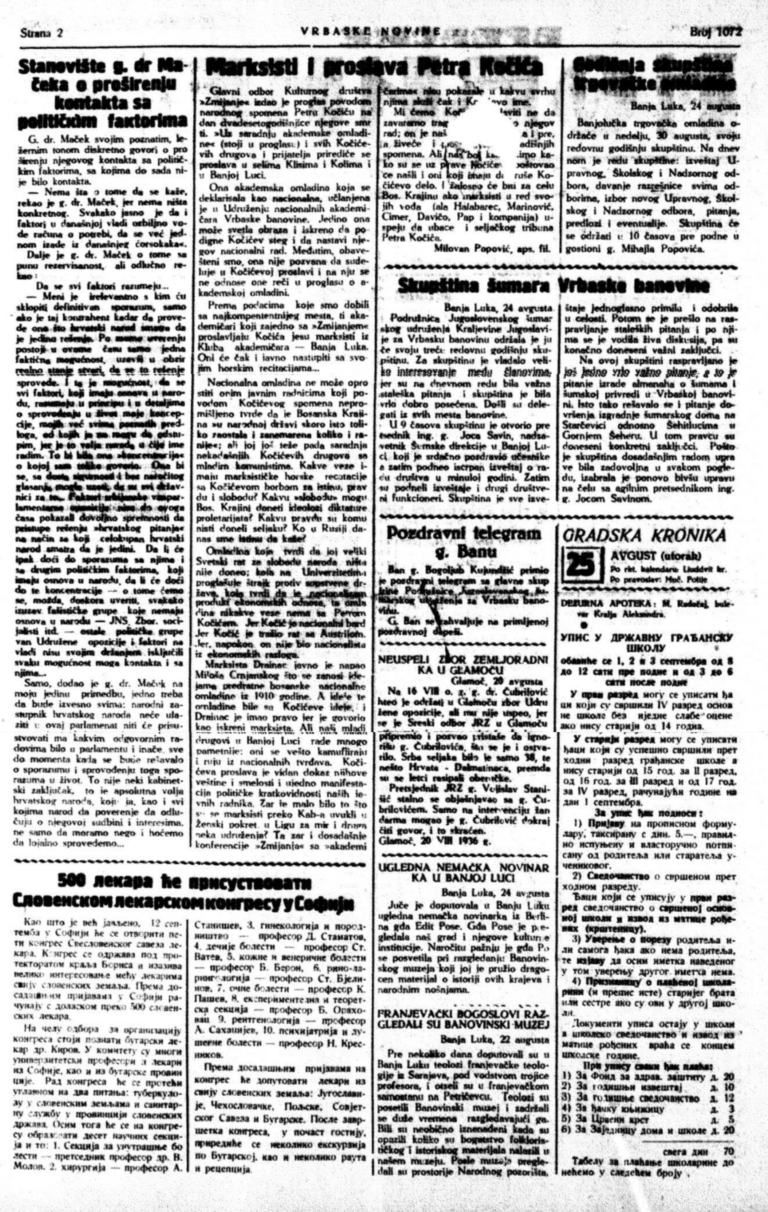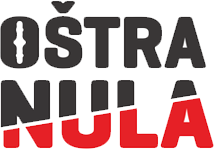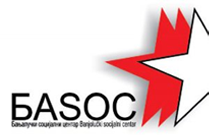“The Main Board of the Cultural Society Zmijanje has issued a proclamation on the occasion of the national commemoration of Petar Kočić on the twentieth anniversary of his death. In cooperation with the academic youth (as stated in the proclamation) and all of Kočić’s comrades and friends, a celebration will be organized in the villages of Klisi and Kola near Banja Luka.
That part of the academic youth that has declared itself national is enrolled in the Association of National Academics of the Vrbas Banovina. Only they can, with honor and sincerity, raise Kočić’s banner and continue his national work. However, we have been informed that they have not been invited to participate in Kočić’s celebration, and that the reference in the proclamation to the academic youth does not apply to them.
According to information we have received from the most competent sources, the academics who, together with Zmijanje, are celebrating Kočić are in fact Marxists from the Club of Academics – Banja Luka. They will even publicly perform with their choral recitations…
The national youth cannot forgive those public figures who, on the occasion of Kočić’s commemoration, rashly claim that Bosanska Krajina, in the national state, is almost as underdeveloped and neglected as it was before. But what is even harder to accept is the collaboration of Kočić’s former comrades with young communists. What connection do Marxist choral recitations have with Kočić’s fight for truth, justice, and freedom? What kind of freedom can the ideologues of the dictatorship of the proletariat bring to Bosanska Krajina? What justice have the communists brought to the peasant? Who in Russia today dares to speak the truth?
The youth who claim that the great world war for national freedom brought them nothing, who declare strikes at universities against their own state, who argue that nationalism is a product of economic relations—such youth have nothing in common with Petar Kočić. Because Kočić was a national bard. Because Kočić called for war against Austria. Because, in the end, he was not a nationalist for economic reasons.
The Marxist Drainac publicly attacked Miloš Crnjanski for being infatuated with the ideas of the pre-war Bosnian national youth of 1910. And the ideas of that youth were Kočić’s ideas, and Drainac was right because he spoke as a sincere Marxist. But our young comrades in Banja Luka act much more cleverly: they skillfully camouflage themselves and undermine national strongholds. Kočić’s commemoration is clear evidence of their cunning and audacity and at the same time a manifestation of the political shortsightedness of our public figures. Was it not enough that the Marxists infiltrated the women’s movement through the KAB, the League for Peace, and other such associations? Have the past conferences of Zmijanje with academics not already shown the purpose to which even Kočić’s name is being put?
We will… celebrate not to deceive… his work; he is ours… both before and now, and he will live on… But our… just as true… admirers have gathered, so have those who… seek to destroy Kočić’s legacy. And it will be a sorrowful thing for all of Bosanska Krajina if the Marxists, alongside leaders such as Hafabarec, Marinović, Cimer, Davičo, Pap, and company, succeed in enlisting the peasant tribune Petar Kočić among their ranks.”
Milovan Popović



